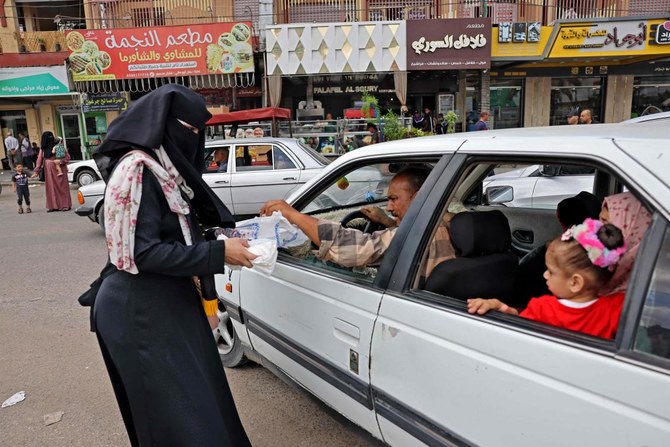TEL AVIV, Israel: Pressure built around Israel’s prison system Wednesday after fires broke out at several facilities and the government hunted for six Palestinian escapees who have been on the run since they tunneled out two days earlier.
Fires were reported at several prisons amid efforts to try to move inmates as a precautionary measure. An umbrella group representing prisoners from all Palestinian factions called on prisoners to resist being relocated to other facilities and to start fires in their cells if guards try to move them by force. The prisoners group also threatened a widespread hunger strike.
The Israel Prison Service said through a spokesperson that a fire broke out in two cells in different wings of Ramon Prison and that the blaze was brought under control. The Palestinian prisoners group reported fires in Ketziot Prison, and there were media reports of more unrest.
Recriminations reportedly rippled through Israel’s prison system, meanwhile, in the wake of the country’s largest jailbreak of its kind in decades. The six men who escaped, between 26 and 49 years old, apparently dug a tunnel out of Gilboa prison near the occupied West Bank and escaped early Monday.
The massive manhunt through Israel’s north and the occupied West Bank continued Wednesday as the new coalition government sought to maintain calm and Jews celebrated Rosh Hashana, the Jewish new year.
The most well-known among the escapees is Zakaria Zubeidi, 46, who was a prominent leader in the Al-Aqsa Martyrs Brigade, an armed group affiliated with Fatah, during the second intifada from 2000-2005. He was later granted amnesty along with other Fatah-affiliated militants, but was arrested again in 2019 on what Israeli authorities said were new terror suspicions.
As a child, Zubeidi had been part of a children’s theater troupe in Jenin established by Arna Mer-Khamis, an Israeli rights activist, that was the subject of a 2004 documentary.
The other five prisoners were members of the Islamic Jihad militant group, and the prisoners’ group said four were serving life sentences.
Inside the prisons, Fatah, Hamas, Islamic Jihad and other factions each have an organized presence and appear to be acting together in the wake of the escape.
The jailbreak poses a potential dilemma for Palestinian President Mahmoud Abbas, whose security forces coordinate with Israel. His Fatah party has praised the prison escape, but he has not commented on it.
Palestinians view prisoners held by Israel as heroes of their national cause, and have celebrated the prison break. If the escapees are apprehended in the occupied West Bank, many Palestinians are likely to blame the Palestinian Authority, which is already facing a popular backlash after the death of an activist in PA custody in June.
Fires flare in Israeli prisons amid manhunt for 6 escapees
https://arab.news/zxyke
Fires flare in Israeli prisons amid manhunt for 6 escapees

- Fires were reported at several prisons amid efforts to try to move inmates as a precautionary measure
- Recriminations reportedly rippled through Israel's prison system in the wake of the country's largest jailbreak
Saudi industry ministry issues 138 new mining licenses during November

RIYADH: Saudi Arabia’s Ministry of Industry and Mineral Resources has issued 138 new mining licenses during November, as part of its efforts to develop the mining sector in the Kingdom and maximize its contribution to diversifying the sources of income for the national economy.
The official spokesperson for the ministry, Jarrah Al-Jarrah, explained that the new mining licenses included 114 exploration licenses, 13 building materials quarry licenses, and seven survey licenses, as well as two surplus mineral ore licenses and two small-scale mining and mine exploitation licenses.
This comes according to the report of the National Center for Industrial and Mining Information, affiliated with the ministry, on mining indicators for November.
Al-Jarrah noted that the total number of valid mining licenses in the sector as of the end of November reached 2,719.
Building materials quarry licenses topped the list with 1,541, followed by exploration licenses with 842, then licenses for mining and small-scale mine exploitation with 255. Reconnaissance licenses came next with 66, and licenses for surplus mineral ores came last with 15.
He pointed out that the Mining Investment Law and its implementing regulations specify six types of mining licenses.
These include an exploration license, which covers all types of minerals for two years and is renewable; a reconnaissance license for all types of minerals for five years for minerals in categories A and B; a license for category C minerals for one year; and a general-purpose license linked to a mining or small-scale mine license.














